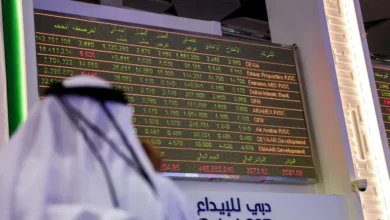
A mechanical engineer quit his job to venture into the lucrative chili farming business on the back of the struggling sugar industry in Kenya.
Balminder Signh Sochi, who for many years ran Kisumu Engineering Works Limited which specialized in servicing sugar mills and machinery in Nyanza and Western regions, hung his boots following incessant delays in payment from the millers which greatly hampered his operations.
His other venture- reconditioning motor vehicle engines, also hit rock bottom after the Japanese market invaded Africa with used engines.
This coupled with the frustration of chasing payments year in year out from struggling sugar millers prompted him to sell his multi-million equipment and garage in Kisumu to venture into the little-known chili farming.
“A friend of mine in the United Kingdom learnt from the social media that I had put my machinery on sale and called me. He asked me to use the proceeds to produce green chili and export it to him in the UK,” he said.
At first, he was reluctant since the two fields were worlds apart but eventually he took up online classes and tips from his friend on how to grow green chili.
He secured a 10-acre piece of land at Nyabeda village of Gen Sub-County in Siaya where he planted four acres of green chili (Demon F1) in June 2021.
His initial capital, he said, went into the construction of a shed net structure for the four acres to protect the crop against pests and diseases and a drip system to ensure a steady supply of water.
“Actually, the crop is fast maturing and easy to manage especially when there are no pests or disease attacks,” he said.
Sochi says through support from KEPHIS, two and a half months after planting he started harvesting, producing 500-600 kgs per acre.
But the production, averaging 1, 500 kgs per week, could not be sold locally since the consumption in the country is relatively low.
Through support from his friends in England, Sochi started exporting the produce in October last year, a venture he said was paying off.
Europe continues to top the global green chili market. With an estimated 5 percent Compound Annual Growth Rate (CAGR), Europe’s market for green chili is expected to continue leading throughout the year.
“Green chili has a huge market in Europe because of the rising number of Indian hotels and restaurants there,” he said.
This, he added, presents local farmers with an opportunity to reap benefits from the crop if they scaled up production because prices at the local markets were poor.
“The export market pays well. Furthermore, you cannot sell 1,200-1,500 kgs every week locally because the demand is not there,” he added.
However, transporting the produce from Kisumu to Jomo Kenyatta International Airport (JKIA) for export proved costly.
“I have paid through the nose to export the chilies from Kisumu to the UK. Managing the quality and temperatures from the farm and the road to JKIA is not a cheap venture,” he said.
He lauded the initiative by Kenya Airways and other stakeholders to introduce fresh produce cargo export at Kisumu International Airport saying it will go a long way to cut costs for farmers interested to venture into the business.
“We are so excited that finally we can export cargo from Kisumu International Airport. This is really going to promote the export business for farmers from this region,” he said.
To scale up production, Sochi urged farmers to take up chili farming, promising to take them through what it takes at the same time link them up with markets.
“We have the capacity to train them on what is required and the KEPHIS regulations for export so that they can venture into this business. Now that we are duly registered and we have markets we can even buy from them and export,” he said.
On January 8, 2022, Kisumu International Airport recorded the first export cargo flight which carried 1.8 tonnes fresh chilies to the United Kingdom, 13 years since it was upgraded.
The historic event which was presided over by Kisumu Governor Prof. Anyang Nyong’o, his Kakamega Counterpart Wycliffe Oparanya, Kenya Airports Authority Alex Gitari and Kenya Airways CEO Alan Kilavuka renewed hopes for farmers and other export businessmen in the area.
Kilavuka said the airline was ready to airlift 42 tonnes of fresh produce from the airport weekly to support trade.
“With the initial capacity of 6 tonnes daily and 42 tonnes per week, KQ has demonstrated that we have the capacity to support trade as required,” he said. This, he added, will open up the region to more investment and export trade business.
Governor Oparanya urged county governments in the lake region to allocate more funds to agriculture to support farmers to produce more for export.
Oparanya who also chairs the Lake Region Economic Bloc (LREB) urged farmers to diversify and venture into horticultural production to benefit from the export market.
Governor Prof. Nyong’o said the upgrade of the airport to include freight services and cold rooms was long overdue adding that the inaugural flight materialized due to cooperation between Kenya Airports Authority, Kenya Airways, Fresh Produce Consortium and Kisumu Lakefront Development Corporation (KLDC).
This, he added signified the future of Public-Private Partnerships (PPP) in fostering development in the country and called for more partnerships to develop a fully-fledged cargo division at the airport.
The new development, he said, would breathe new life into horticulture, fisheries, livestock production and fresh produce production, turning around the fortunes for farmers.
Nyong’o added that the cargo division would spur industrialization and investments at the same time create job opportunities for the youth.





